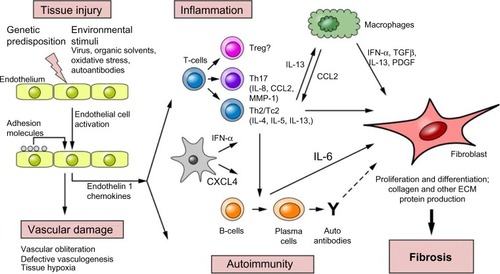Figures & data
Table 1 Clinical studies of immunotherapeutic candidates in systemic sclerosis

